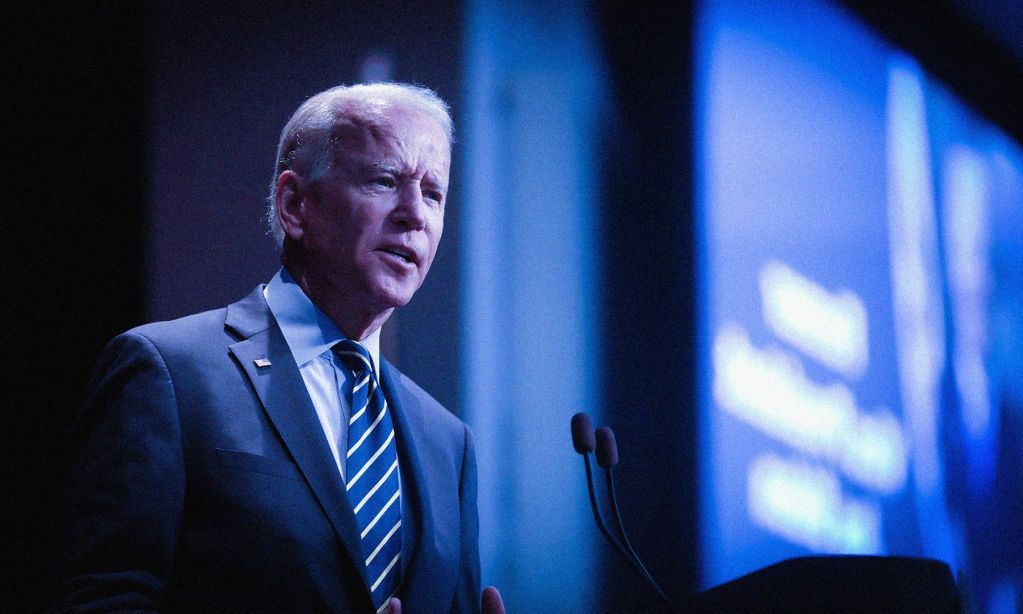It’s been over six years since Donald Trump called time on the North American Free Trade Agreement (NAFTA), forcing Mexico and Canada to negotiate a new pact to manage North American economic relations. The resulting Canada-U.S.-Mexico Agreement (CUSMA), a NAFTA clone with improvements on labour rights but highly problematic new language on digital trade, intellectual property rights, and regulatory restraint, came into force in July 2020.
There are compelling reasons why we should push to renegotiate the treaty yet again—and a compelling opportunity to do so in CUSMA’s approaching six-year review period. Far from representing a “gold standard” in international trade policy, as Trump’s trade representative Robert Lighthizer liked to say, the “New NAFTA” is a neoliberal relic unfit for handling today’s shifting economic, social, and environmental priorities.
Digital trade reboot
CUSMA’s digital trade chapter is an anachronism in a world coming to terms with the threat of unregulated artificial intelligence in the hands of opportunistic, profit-seeking tech oligarchs. The Biden administration’s recent about-face on data flows, data localization and source code rules in trade deals make this chapter a clear target for a progressive rewrite ahead of the 2026 deadline.
As Erika Beauchesne and I wrote recently, CUSMA contains some of the most restrictive rules of any trade agreement with respect to regulating the activities of data-hoarding, privacy-flouting tech companies. Restrictive on governments, that is, with profound implications for anti-monopoly and pro-privacy measures. U.S. group Rethink Trade has lots to say about the problems with the Big Tech trade agenda.
CUSMA’s ban on data localization policies (Art. 19.12) puts our privacy at risk by allowing companies to move personal data across borders without limits, even to jurisdictions where privacy laws are weak. CUSMA undermines governments’ ability to access company algorithms or source code (Art. 19.16) that may be discriminatory, harmful, or involve intrusive surveillance practices. This is an important issue for workers within and outside the tech industry or so-called gig economy.
“Technology companies and other employers are increasingly supervising, surveilling and even disciplining workers with automated artificial intelligence (AI) and algorithmic management systems that can shortchange workers’ earnings, expose workers to unsafe workplace conditions, infringe on the right to form unions and exacerbate employment discrimination,” writes the AFL-CIO in a February 2023 paper on a worker-centred digital trade agenda.
In the paper, the union calls on the Biden administration to correct the “narrow, corporate approach” to digital trade and ecommerce in deals like CUSMA, “to allow for broader policy space to protect personal data, strengthen economic security, protect domestic jobs, and tackle the downsides of the digital transition on workers, consumers and society.”
Biden walks it back
Refreshingly, given the lobbying power of Silicon Valley–based tech giants, the Biden administration listened to workers and backtracked on several Trump-era digital trade positions in negotiations at the World Trade Organization and in U.S.-led Indo-Pacific trade talks.
On October 25, the U.S. told countries negotiating a controversial plurilateral ecommerce initiative at the WTO that it was withdrawing proposals on data flows, data localization, and source code.
“It is essential that our approach to digital trade policy is grounded in how it affects our people, both as workers and consumers,” said the U.S. rep, according to an unofficial transcript. “We also must ensure that our policy takes into account these regulatory objectives, balancing the right to regulate in the public interest and the need to address anticompetitive behavior in the digital economy.”
Then on November 7, a group of progressive Democrats congratulated the Biden administration for “suspending negotiations” on key ecommerce trade rules within the Indo-Pacific Economic Framework for Prosperity negotiations involving 14 Asia-Pacific nations. (Canada is still angling for a seat at the IPEF table as U.S. officials hint talks on all four pillars are nearly finished.)
“We thank you for suspending negotiations on aspects of the IPEF digital text that can be used to frustrate privacy, AI, civil rights and liberties, anti-monopoly, gig worker and other digital safeguards that Congress and the administration seek. This includes terms covering personal data, which could derail policies to protect consumer privacy and our kids online and to secure data related to infrastructure and other sensitive sectors,” a dozen senators and members of congress said in a letter to Biden (accessed at Inside U.S. Trade).
“Another rightly suspended provision could be construed as branding competition policies that apply equally to domestic and foreign firms as ‘illegal trade barriers’ if they have a greater impact on some U.S. firms simply because these firms are large, not because they are American. This provision would undermine most tech anti-monopoly policies."
As a result of this positive change of heart (pro-worker, yes, but with an eye on China's tech/AI competitiveness), CUSMA is now out of step with U.S. trade policy and public demands for responsible AI regulations and an end to big tech data hoarding.
Canada and Mexico should willingly work with the U.S. to withdraw the treaty’s harmful digital trade rules as part of the six-year CUSMA review. If not now, when?
A progressive plan for CUSMA renewal?
With the “New NAFTA” opened up to rewire its digital trade rules, why not take another look at the treaty’s language on worker rights (including migrant workers), the rights of Indigenous Peoples, human rights (including 2SLGBTQ+ rights), gender, and disability, as this year’s Alternative Federal Budget recommends? Why not fully disable the investor-state dispute settlement system in Mexico, where a downgraded version is still available for U.S.-based fossil fuel and energy companies?
On the one hand, re-renegotiating NAFTA/CUSMA will not be Canada’s first impulse. Former diplomat Louise Blais, now an advisor with the Business Council of Canada, told The Hill Times in October that Canada should aim for “a very smooth rollover of the agreement as opposed to arriving with a list of things to change or improve.”
In that same article, Global Affairs Canada official Aaron Fowler says that “if we focus on relitigating issues that we already went through, then this opportunity would become a moment of jeopardy for the agreement and the three countries and the industries that rely on this instrument.”
On the other hand, Steve Verheul, the retired chief negotiator for Canada on Trump’s NAFTA renegotiation, says the government should be ready for anything. “You have to game out every single scenario, by sector, by chapter, by virtually every issue that could come up or might come up [to] have your position, your fall back, all your offensive interests, all your defensive interests.”
Verheul proposes that business communities should help the government set the agenda for what those offensive and defensive interests are: “That would have a powerful influence,” he said. (Verheul and Fowler were both speaking at a Canadian Global Affairs Institute event with Brookings at the Rideau Club on September 26.)
The gauntlet has been thrown. Whether or not North American governments want a peaceful rollover of CUSMA or a scrappy rewrite, business interests and right-wing forces in all three countries are preparing to make the deal worse.
Mexican, Canadian and U.S. civil society need to come together as well to develop a united plan for progressive CUSMA renewal or risk the agenda being taken over by reactionary political forces.







